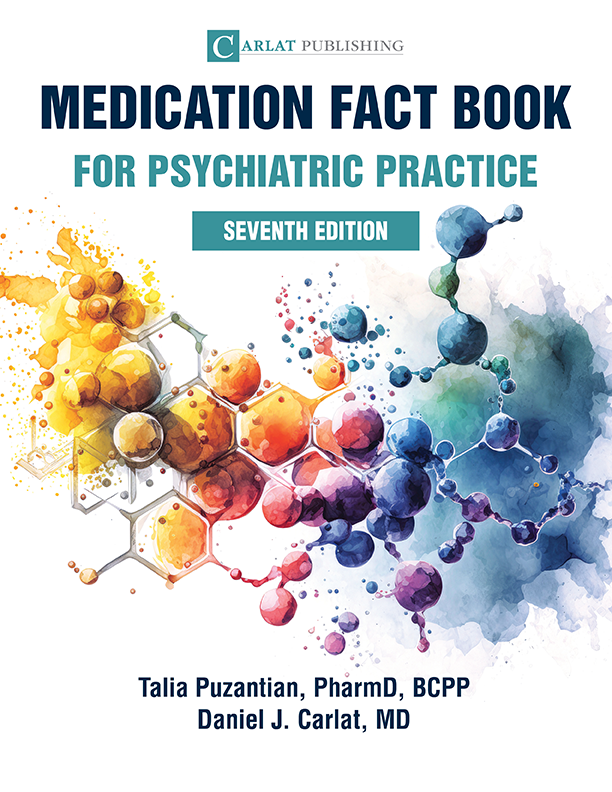General Psychiatry
CLINICAL UPDATE
Psychopharmacology in Jails: An Introduction
Joe Simpson, PhD, MD.
Supervising psychiatrist at the Los Angeles County DMH Jail Mental Health Services, CA
Dr. Simpson has disclosed that he has no relevant financial or other interests in any commercial companies pertaining to this educational activity.
Read More
Correctional Psychiatry: Salary and Benefits Are Generous
 Daniel Carlat, MD
Editor-in-Chief, Publisher, The Carlat Report.
Dr. Carlat has disclosed that he has no relevant relationships or financial interests in any commercial company pertaining to this educational activity.
Daniel Carlat, MD
Editor-in-Chief, Publisher, The Carlat Report.
Dr. Carlat has disclosed that he has no relevant relationships or financial interests in any commercial company pertaining to this educational activity.
The Experience of Correctional Psychiatry
Patrick Gariety, MD Psychiatrist at Group Health Behavioral Health Services, WA
Dr. Gariety has disclosed that he has no relevant financial or other interests in any commercial companies pertaining to this educational activity.
Psychiatrist at Group Health Behavioral Health Services, WA
Dr. Gariety has disclosed that he has no relevant financial or other interests in any commercial companies pertaining to this educational activity.
Read More
 Psychiatrist at Group Health Behavioral Health Services, WA
Dr. Gariety has disclosed that he has no relevant financial or other interests in any commercial companies pertaining to this educational activity.
Psychiatrist at Group Health Behavioral Health Services, WA
Dr. Gariety has disclosed that he has no relevant financial or other interests in any commercial companies pertaining to this educational activity.
Ongoing ECT Does Not Equal Ongoing Cognitive Problems
 Bret A. Moore, PsyD, ABPP
Board-Certified Clinical Psychologist, San Antonio, TX
Dr. Moore has disclosed that he has no relevant financial or other interests in any commercial companies pertaining to this educational activity.
Bret A. Moore, PsyD, ABPP
Board-Certified Clinical Psychologist, San Antonio, TX
Dr. Moore has disclosed that he has no relevant financial or other interests in any commercial companies pertaining to this educational activity.
Second-Generation Antipsychotics Do Not Raise Risk of Major Malformations
 Bret A. Moore, PsyD, ABPP
Board-Certified Clinical Psychologist, San Antonio, TX
Dr. Moore has disclosed that he has no relevant financial or other interests in any commercial companies pertaining to this educational activity.
Bret A. Moore, PsyD, ABPP
Board-Certified Clinical Psychologist, San Antonio, TX
Dr. Moore has disclosed that he has no relevant financial or other interests in any commercial companies pertaining to this educational activity.
Four Newer Antidepressants: Should You Use Them?
 Steve Balt, MD
Research fellow, Addiction Pharmacology Research Laboratory, California Pacific Medical Center
Dr. Balt discloses that his spouse is employed as a sales representative for Bristol Myers Squibb.
Steve Balt, MD
Research fellow, Addiction Pharmacology Research Laboratory, California Pacific Medical Center
Dr. Balt discloses that his spouse is employed as a sales representative for Bristol Myers Squibb.
 Talia Puzantian, PharmD, BCPP
Clinical psychopharmacology consultant in private practice, Los Angeles, CA.
Dr. Puzantian has disclosed that she has no relevant relationships or financial interests in any commercial company pertaining to this educational activity.
Talia Puzantian, PharmD, BCPP
Clinical psychopharmacology consultant in private practice, Los Angeles, CA.
Dr. Puzantian has disclosed that she has no relevant relationships or financial interests in any commercial company pertaining to this educational activity.
Thinking Creatively About Treatment-Resistant Depression
 J. Alexander Bodkin, MD
Director of the Clinical Psychopharmacology Research Program at McLean Hospital in Belmont, MA; assistant professor of psychiatry at Harvard Medical School
Dr. Bodkin has disclosed that he has been a principal investigator in a study of brexpiprazole. Dr. Carlat has reviewed his interview and has found no evidence of bias in this educational activity.
J. Alexander Bodkin, MD
Director of the Clinical Psychopharmacology Research Program at McLean Hospital in Belmont, MA; assistant professor of psychiatry at Harvard Medical School
Dr. Bodkin has disclosed that he has been a principal investigator in a study of brexpiprazole. Dr. Carlat has reviewed his interview and has found no evidence of bias in this educational activity.

_-The-Breakthrough-Antipsychotic-That-Could-Change-Everything.jpg?1729528747)



